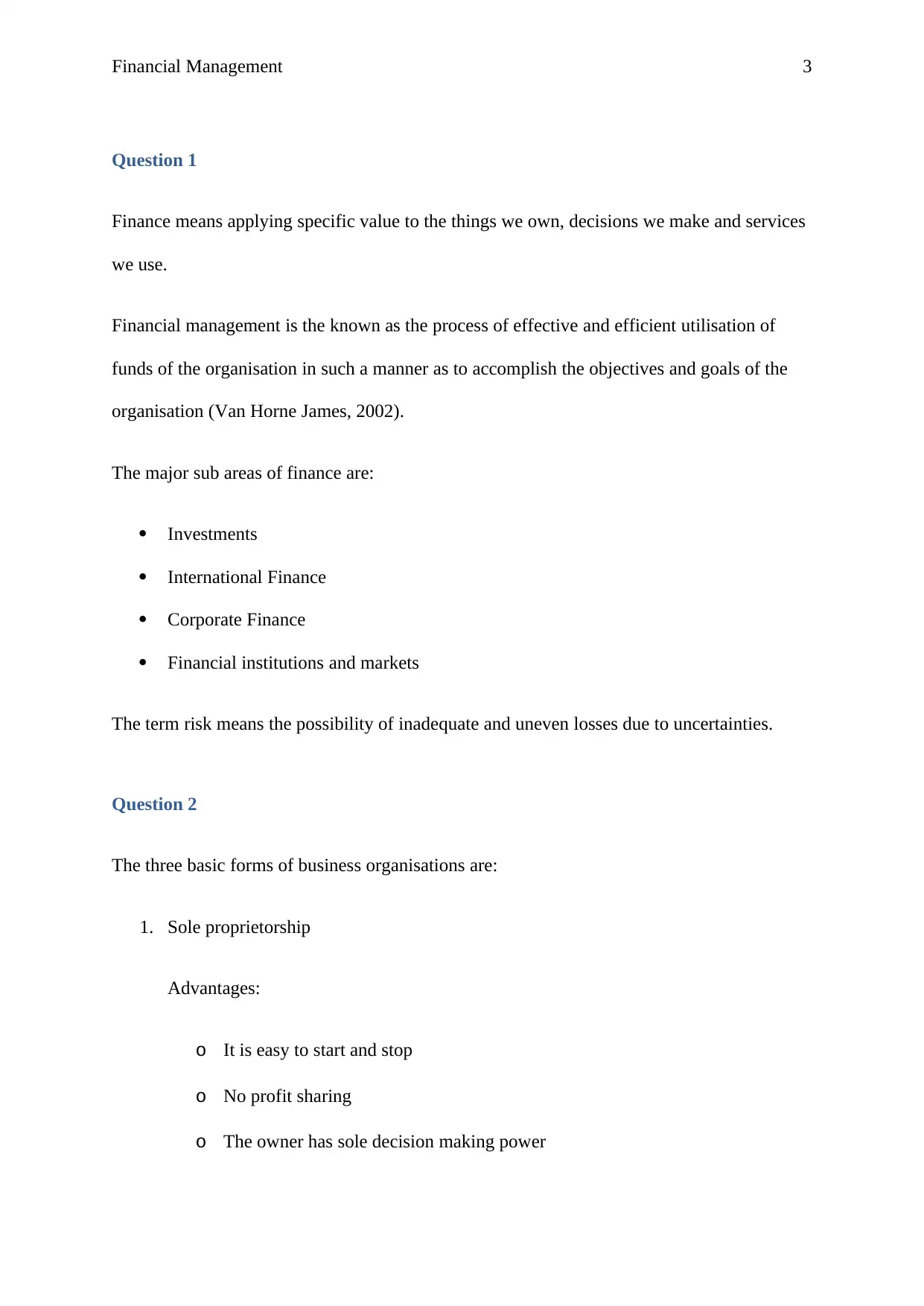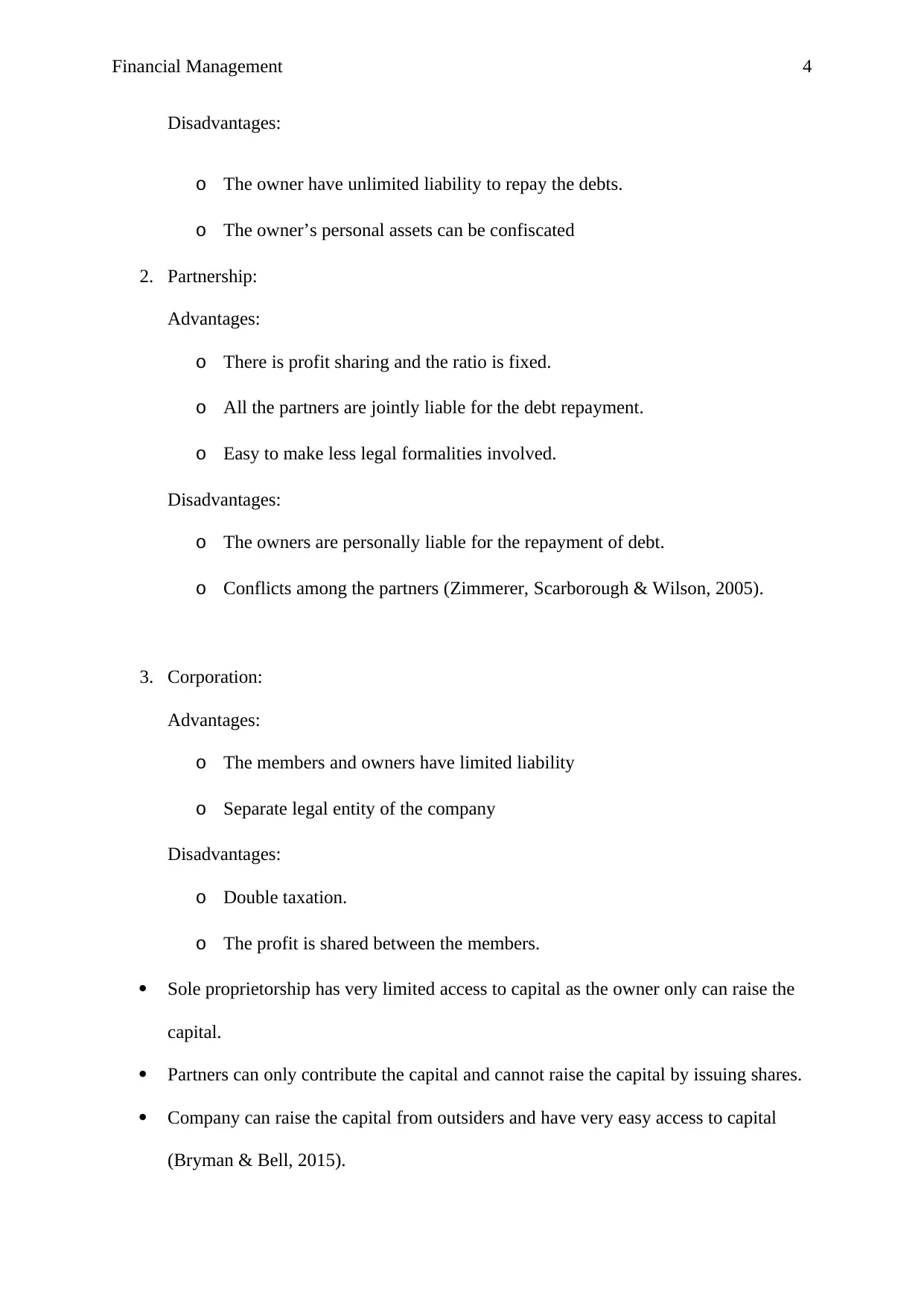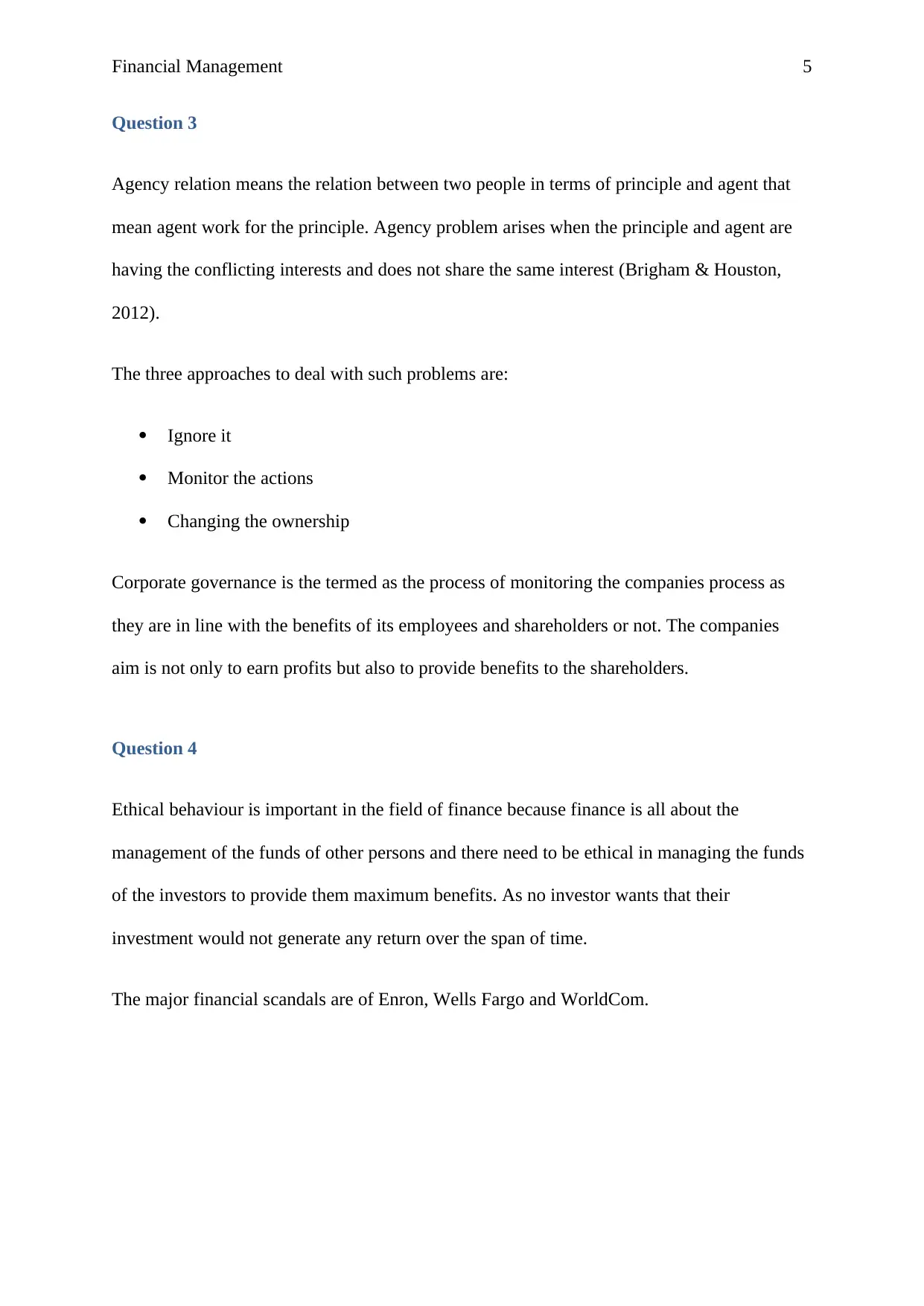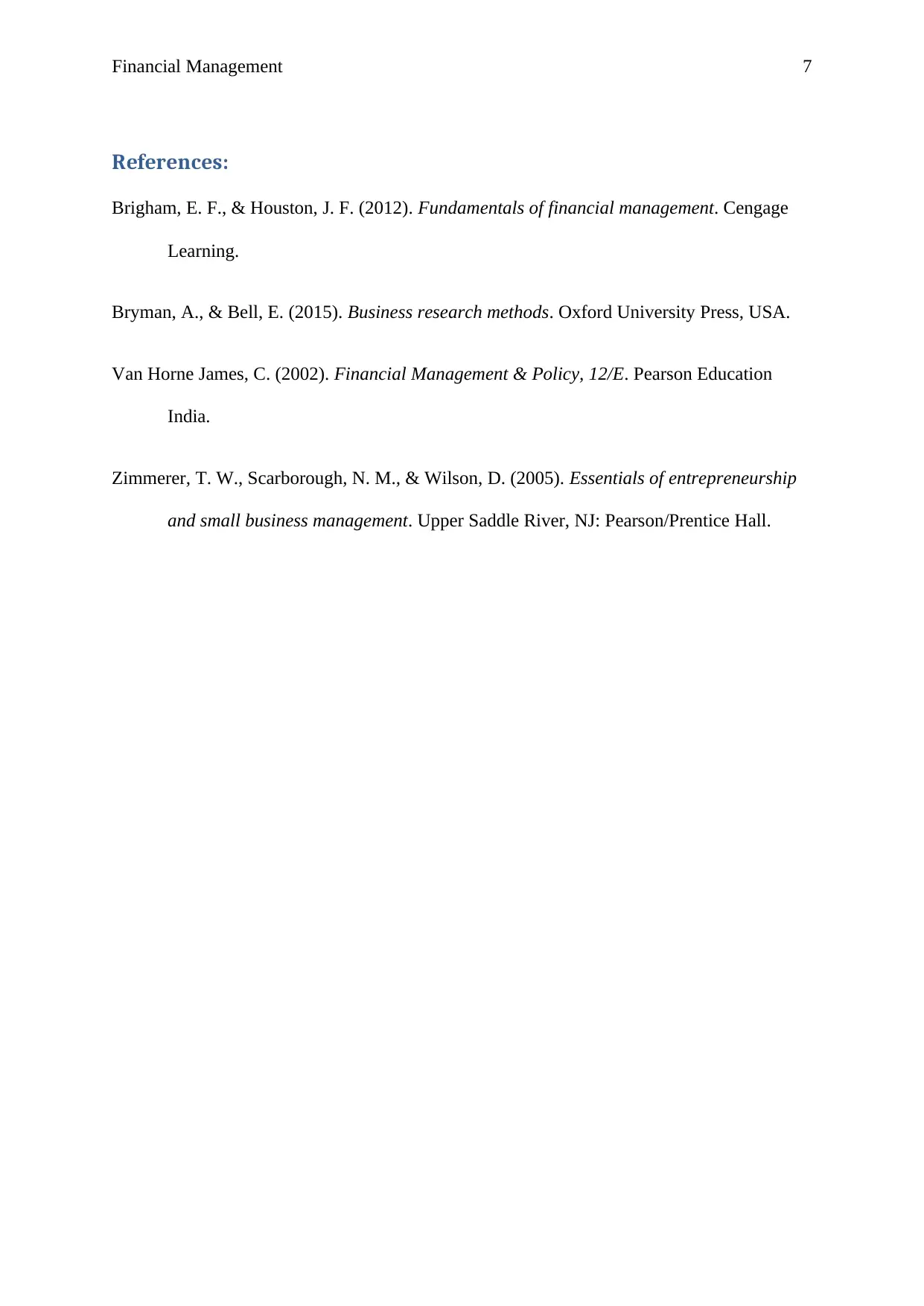Comprehensive Report on Financial Management Principles
VerifiedAdded on 2023/06/15
|7
|735
|232
Report
AI Summary
This report provides a comprehensive overview of financial management, encompassing the application of value to financial decisions and the efficient utilization of organizational funds. It delves into core sub-areas of finance, including investments, international finance, corporate finance, and financial institutions, while also addressing the concept of risk. The report further examines the three basic forms of business organizations—sole proprietorships, partnerships, and corporations—highlighting their respective advantages and disadvantages, as well as their access to capital. Agency relations and the challenges they pose, along with approaches to mitigate agency problems, are discussed, alongside the importance of corporate governance and ethical behavior in finance, referencing notable financial scandals. The ultimate goal of shareholder wealth maximization and its alignment with ethical practices is explored, concluding with an explanation of how individual economic self-interests can collectively benefit society. Desklib offers this document along with numerous past papers and solved assignments to support students in their studies.
1 out of 7














![[object Object]](/_next/static/media/star-bottom.7253800d.svg)